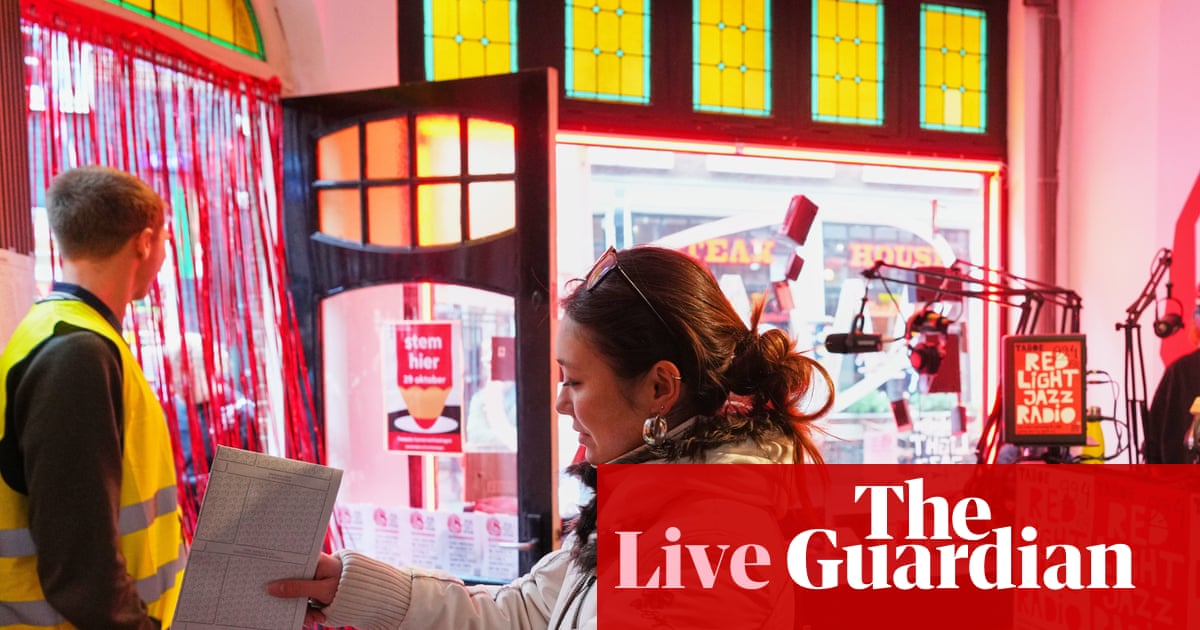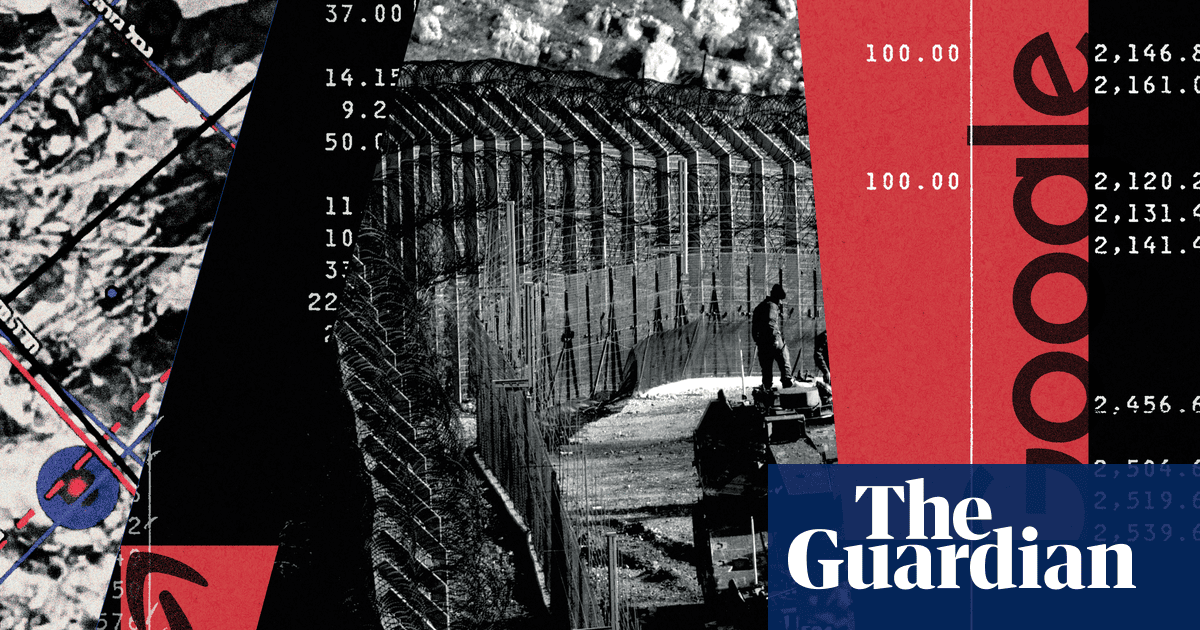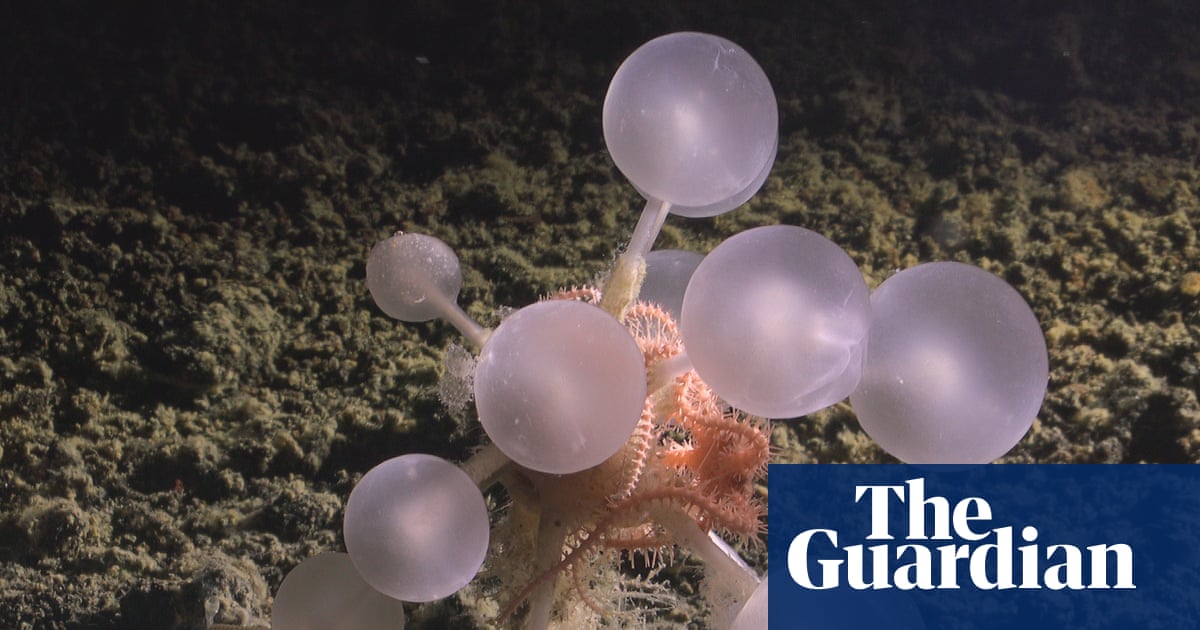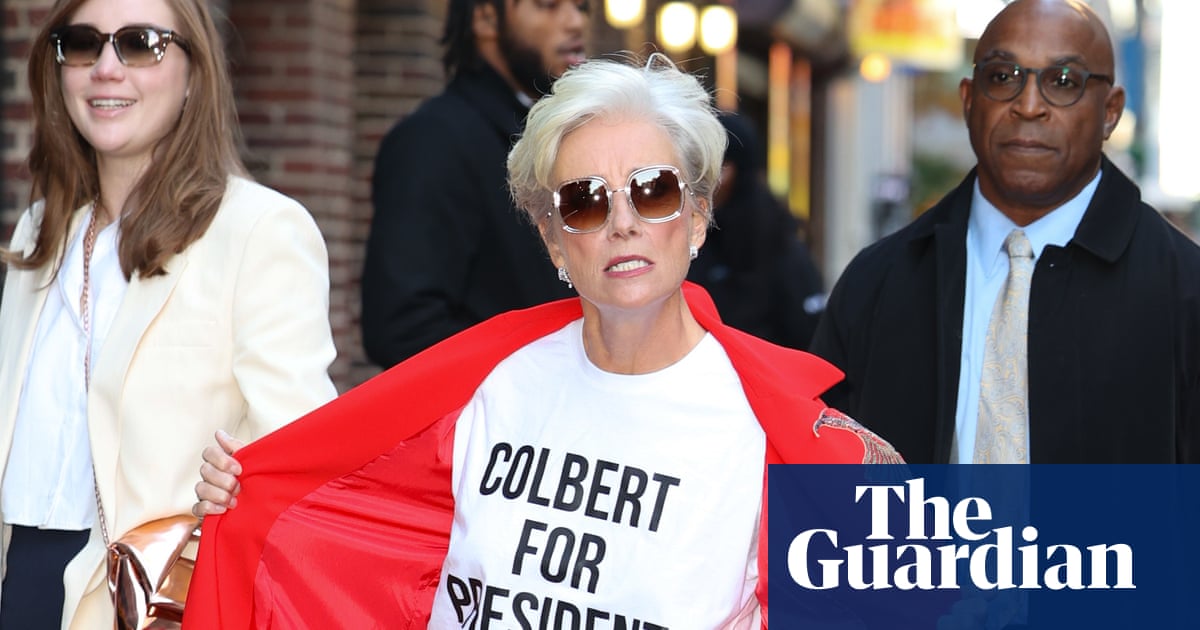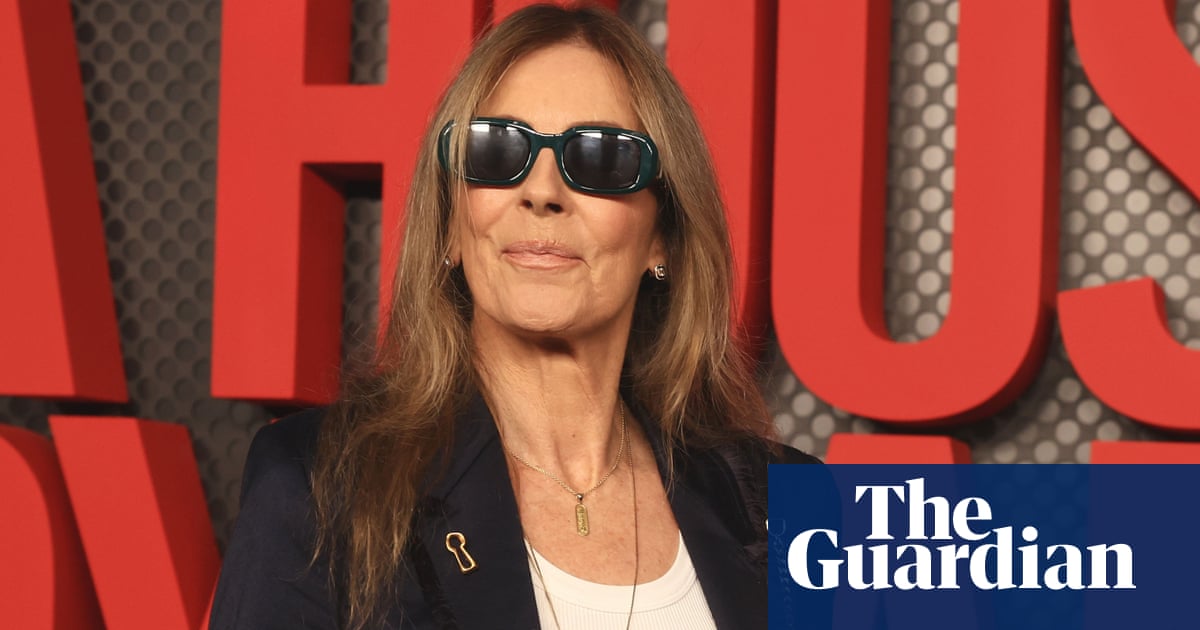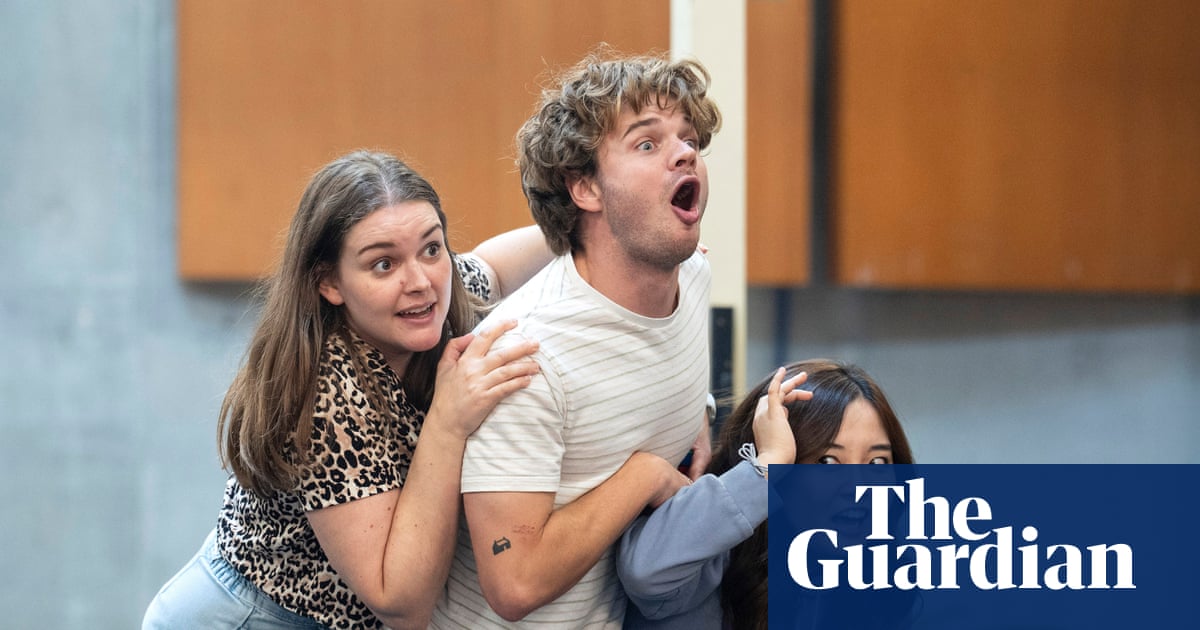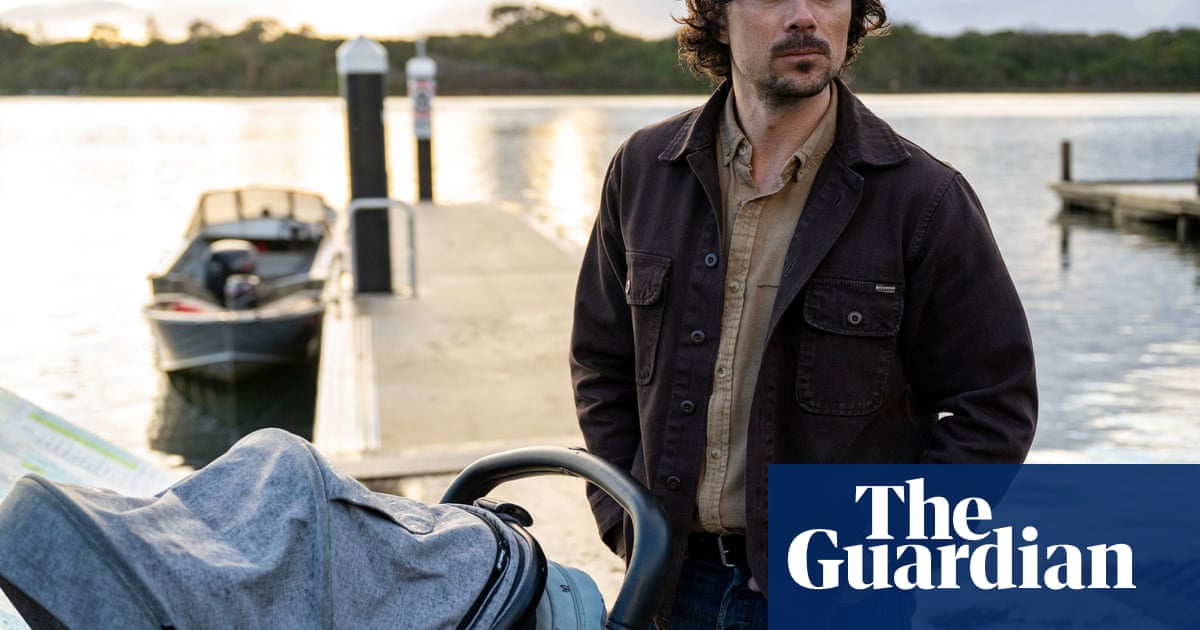Juana Molina answers our video call from a hospital bed, reclining in a green T-shirt with two cannulas in her hand. She has done her back in while also playing Whack-a-Mole with hernias, two last year, and two new ones now. “Do you know those toys, made of little pieces of wood, and you press the bottom and it goes” – she makes herself floppy, mimicking a push puppet – “that’s exactly how I was yesterday.” But now, says the 64-year-old Argentinian musician, “I have so many painkillers, that I …” She wobbles her eyelids, gurns and gives me two thumbs up.
For the avoidance of doubt, Molina seems entirely with it, and insists we continue when I offer to reschedule. She is ultra precise on the technical odyssey she undertook to make her new record, and also extremely funny company, cheeky and withering about anyone who’s too serious – or worse, boring.
In the early 90s, Molina was one of Argentina’s biggest comedians with her sketch show Juana y Sus Hermanas (Juana and Her Sisters), in which she portrayed a series of outre characters with some degree of John Waters in their DNA. (Some of them still go viral on TikTok, which she doesn’t let herself use because it’s too addictive.) But in 1993, on bed rest while pregnant with her daughter, she realised that if she didn’t pursue her lifelong dream of becoming a musician, she would one day be a bitter old woman railing at the pop charts. So she quit. It was as much of a shock to the nation as it would be if Kristen Wiig swapped SNL for MTV.
It worked out, winning Molina ardent fans such as David Byrne and Feist, and a good chunk of her career signed to Domino. Next year marks 30 years since her musical debut, Rara. For three decades, or at least since things solidified on her 2000 breakthrough, Segundo, she has minted her own unique sound, made of dry, rhythmic guitar loops, drones, low pulses and incantatory voices rich with mystery. It’s enveloping in a comfortingly spooky sort of way.
To record, Molina says, she has to get out of her own way to enter “the world of pure music. There’s no thought, no concepts or pre-ideas. It’s flowing, and I am driving and being driven at the same time, tourist and guide.” Nothing gives her more pleasure than working alone at home in Pacheco, outside Buenos Aires, surrounded by her three dogs, cats and the plants she “cohabits” with. The house once belonged to her grandmother. “I sometimes spend 14 hours in the studio and I don’t even drink a cup of tea, nothing!” she says. “All of a sudden, I hear birds. The whole night has gone by and I didn’t realise because I’m in a tunnel where the only language is music.”
That may also be how Molina ended up in this hospital bed. “I think what’s happening to me is because I am all the time bent over, playing and looking for things, and I don’t even think about my [posture],” she says. For her eighth album, Doga, her first since 2017’s Halo, she has been trying to master the furiously difficult world of analogue synths, hunching over instruments that resemble old-fashioned telephone switchboards to invent sounds that don’t rely on pre-programmed waveforms. “You can do whatever you want, and you need to know a lot,” says Molina.
She recorded everything she made but became overwhelmed by the hundreds of hours of tape. It prompted her to work with a producer, Emilio Haro, for the first time since her debut. Doga is deeper and more spacious than its predecessor, with synthesised orchestral touches: the guitars on Miro Todo (I See Everything), says Molina, sound like violins that “are somehow out of tune, but in a very nice way, like played as if the player wasn’t feeling like playing.” She makes a beleaguered, twitchy face to illustrate. Often the experimentation was truly analogue: Molina would play guitar while Haro moved knobs, “which is something you can’t do while playing”, she says, “unless you have extraordinary feet”.
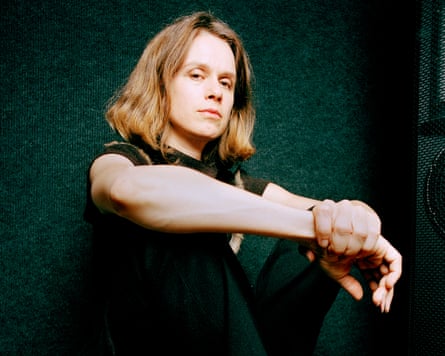
Recently, Molina tried to re-record her first album, having lost the rights to a former label. Rara is an outlier in her catalogue, her only full-band record: she says most people who love that album don’t like her others. “I recorded half of it and when I started singing it, I felt it wasn’t right,” she says. The problem was that although it was recorded in 1995, it featured songs she had written as a young woman in 1983. “Those lyrics, they’re so romantic and suffering,” she says, rolling her eyes. “The first song talks about a girl that has a picture of a boy in her book, she thinks of him and wonders if he thinks about her. Then we go to his story and he’s put her photo in an old jacket, he checks the pockets and throws it away. He doesn’t even remember her!”
Molina looks stricken that she ever told such a story. (And she has since got the rights to Rara back.) But otherwise she says she remains intimately connected to herself at all ages, in defiance of the idea that there are certain ways she should be at 64. On her 2013 album Wed 21, a song called Las Edades (The Ages) was about starting to feel that she repelled younger people. “Maybe it’s a survival thing that you need to mate with someone your age in order to have children and all that,” she says. “But the weird thing is that I can be with children, eight years old, and feel as if I’m eight. If I’m with 16-year-old guys, I feel as if I’m 16. It’s not that I am only 64; it’s not that all those ages disappear. It’s just a way that people count ages. Age became so important for society, and it hurts when you get older. You feel the rejection.”
She recently attended a 60th birthday party, and lamented how “incredibly boring” a lot of the conversations were, about politics and the economy. “One of the things I hate the most in life is to be solemn,” she says. “Solemnness is for a burial. But when you are solemn about life, things need to be done this way and you can’t dress that way and you can’t eat with your hands,” she intones in a dreary voice, “there’s a huge boredom”.
Proof of the eternally rejuvenating properties of curiosity, Molina would rather “talk about a chair, the way a glass is made or why the handle of a cup has that shape, things that are not important but are so much fun to talk about”, or learn how things work so that she can mend them herself: “If I fix the window, it feels good.” She recently co-founded a label, Sonamos, and thrills at the enthusiasm and knowledge of her partner Mario Agustín de Jesús González. “His curiosity has no limits,” she says. “Though sometimes I get a bit like, let’s talk about pizza.”
When people bug her saying that Argentina needs her back on TV (even though she has a small part in Netflix women’s prison drama En el Barro), she wonders why they don’t realise that online comedy clips are the new TV. On her Instagram, she frequently addresses fans while disguised by a novelty filter – maybe her as an elderly woman, or a field of seven babies wearing strawberry hats. “When I think I spent hours with wigs and makeup, and now I just scroll and an unexpected character is there, it makes me so joyful that you can bring them to life immediately,” she says. As with music leading her, “the filters tell me what to do with them, it’s like an instant impersonation.” Similarly, the cover of Doga features Molina convincingly Photoshopped as a very fluffy dog.
Maybe this resistance to branding herself as a serious artiste has constrained Molina’s deserved legacy a little outside South America. But her allergy to gravitas and even to the concept of legacy feels refreshing; she mostly seems intent on giving listeners the same feeling of “pure music” as she experiences. At her gigs, she eschews visuals “because I thought, if the music doesn’t give you enough images then it’s a failure”, she says. She hopes she’s still making music in another 30 years’ time “if my body allows me to”, and only hopes she’ll have some more help in the studio. “I would love to have assistance to help me with whatever sound I want to get,” she says, “instead of being there breaking my back on the instruments.”

.png) 2 hours ago
4
2 hours ago
4

